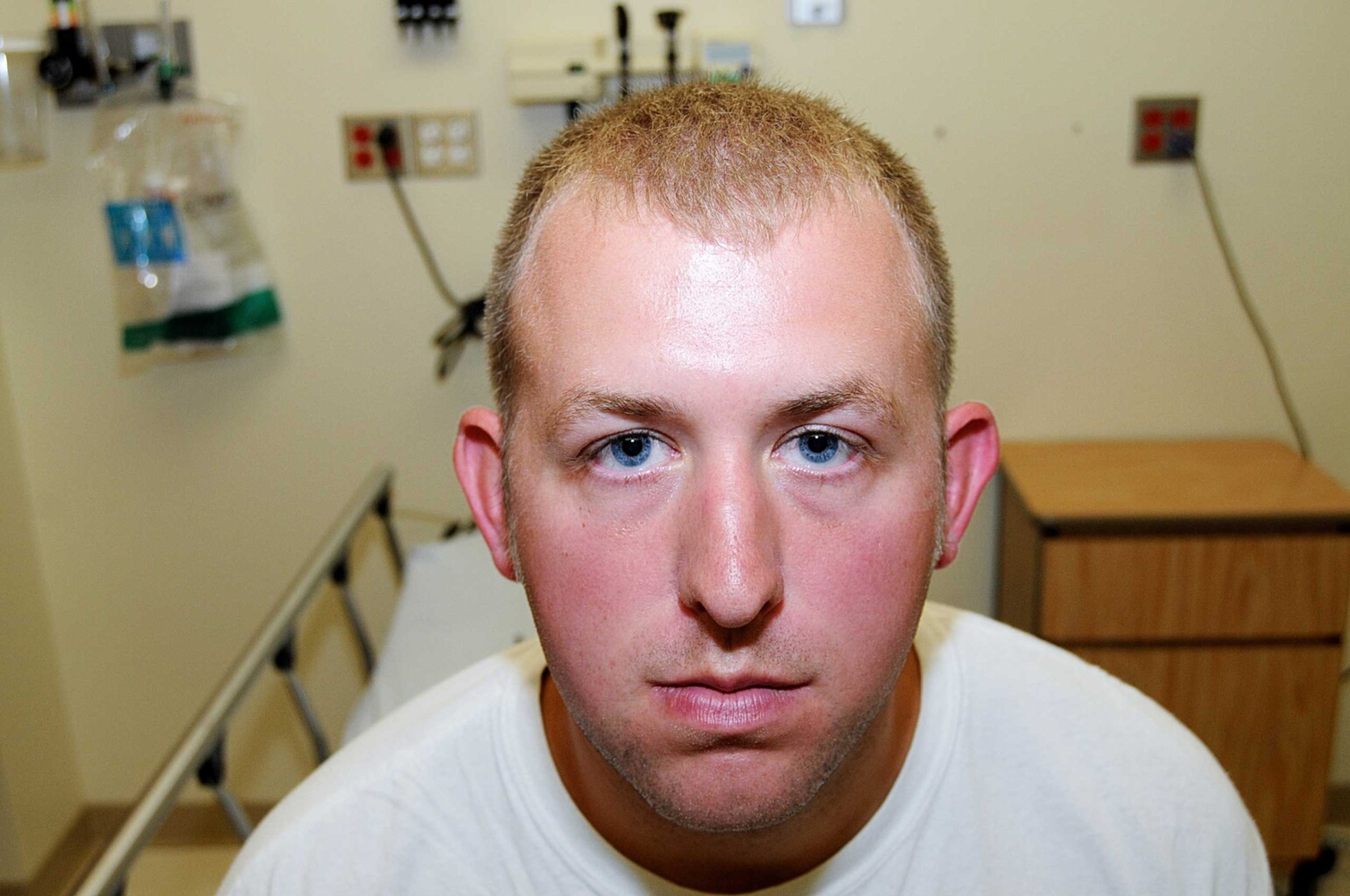
Of all the conflicting evidence emerging from the grand jury transcripts in the Michael Brown shooting, one statement in particular leaped out at me. It’s Officer Wilson’s testimony that when Brown saw Wilson go for his gun, Brown taunted, “You’re too much of a p-ssy to shoot me.”
Many have responded to Wilson’s account of the confrontation with skepticism, to say the least. As to whether the unarmed Brown indeed issued that particular challenge to Wilson’s manhood, or Wilson imagined it or later invented it, or now sincerely remembers it that way, we have no way of knowing. All we can know for sure is that Brown is dead, and that guys throwing around terms like that as slurs on each other’s manhood isn’t exactly a new story.
VOTE: Should the Ferguson Protestors Be TIME’s Person of the Year?
A lot has been said and will continue to be said on the issue of race in this case, but perhaps there are a few things to say on the subject of masculinity as well. For instance, much was made in the aftermath of the shooting about the militarization of local police forces; the term warrior cop has become a staple of the American vocabulary. And statistics on police shootings are ever more horrifying: 461 “justifiable homicides” last year alone, the highest number in two decades.
See Nationwide Protests for Ferguson
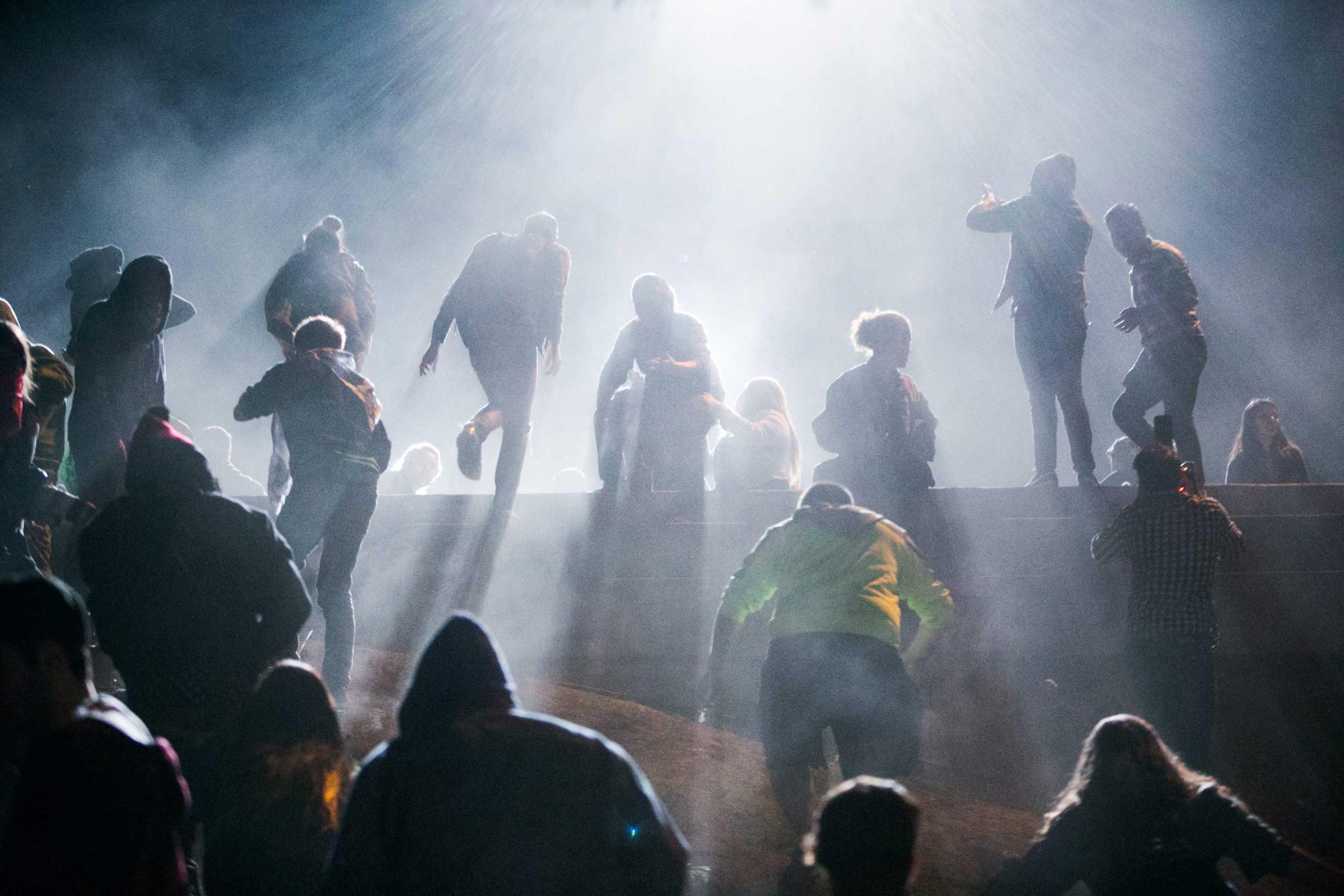
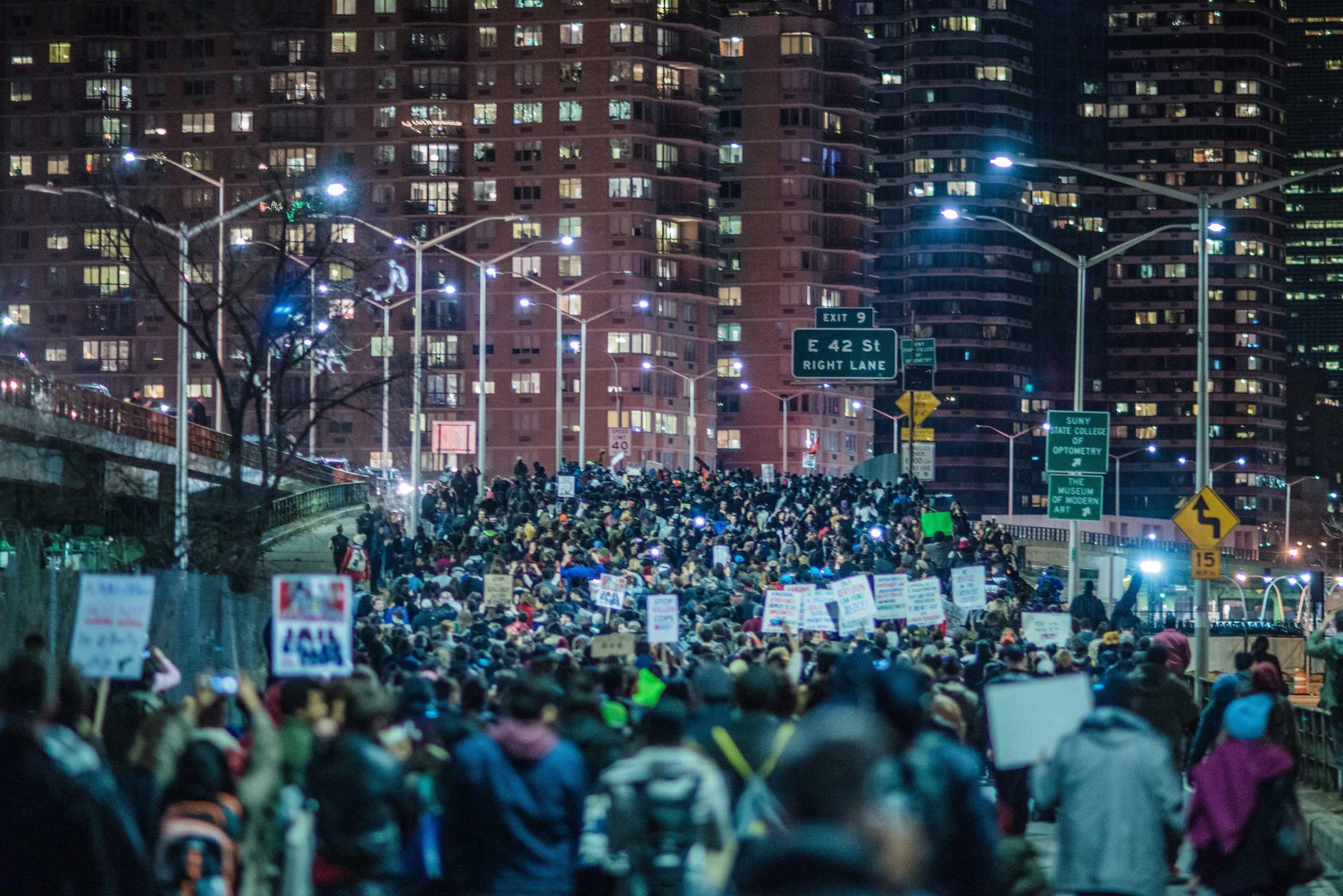
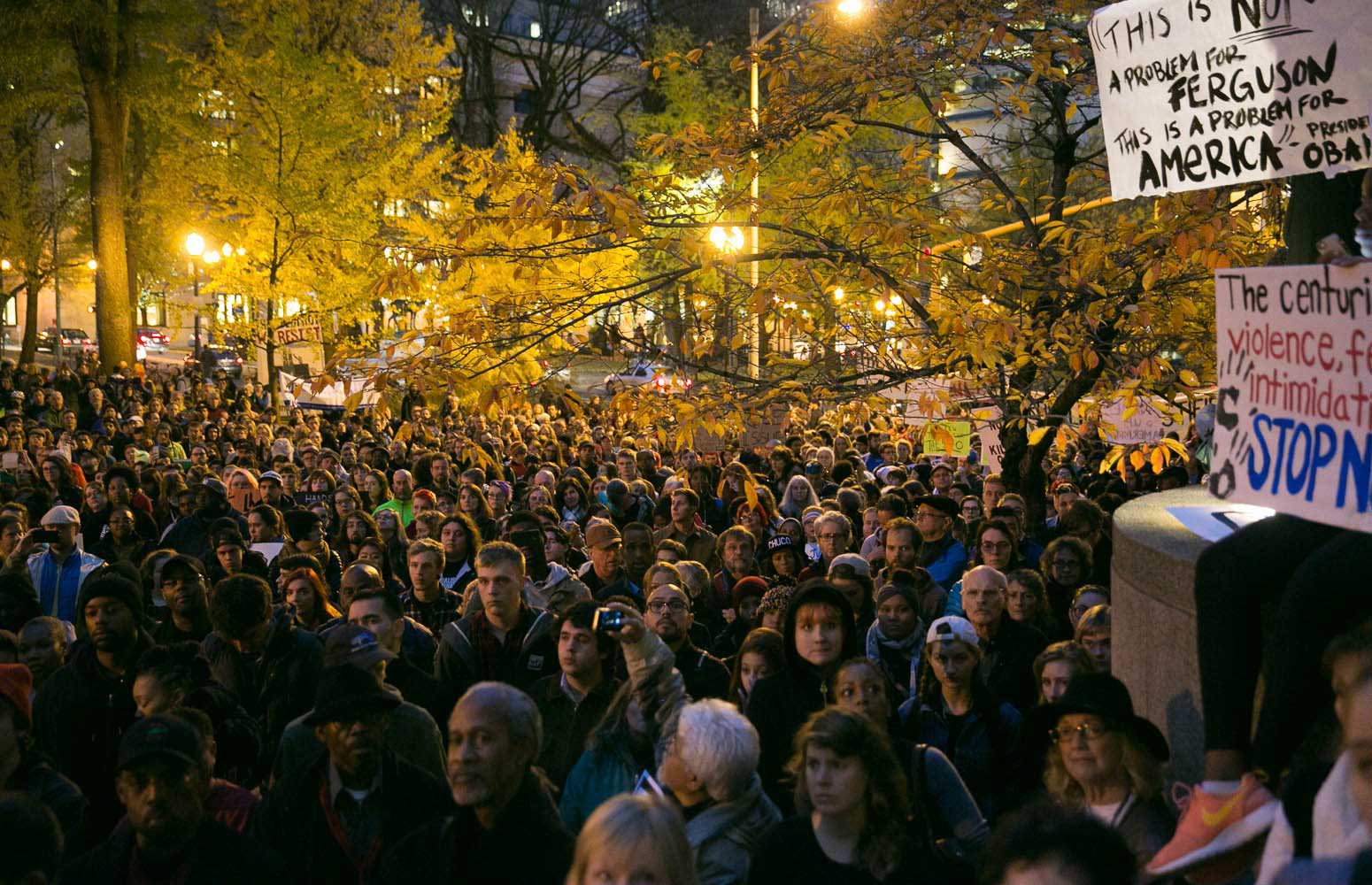
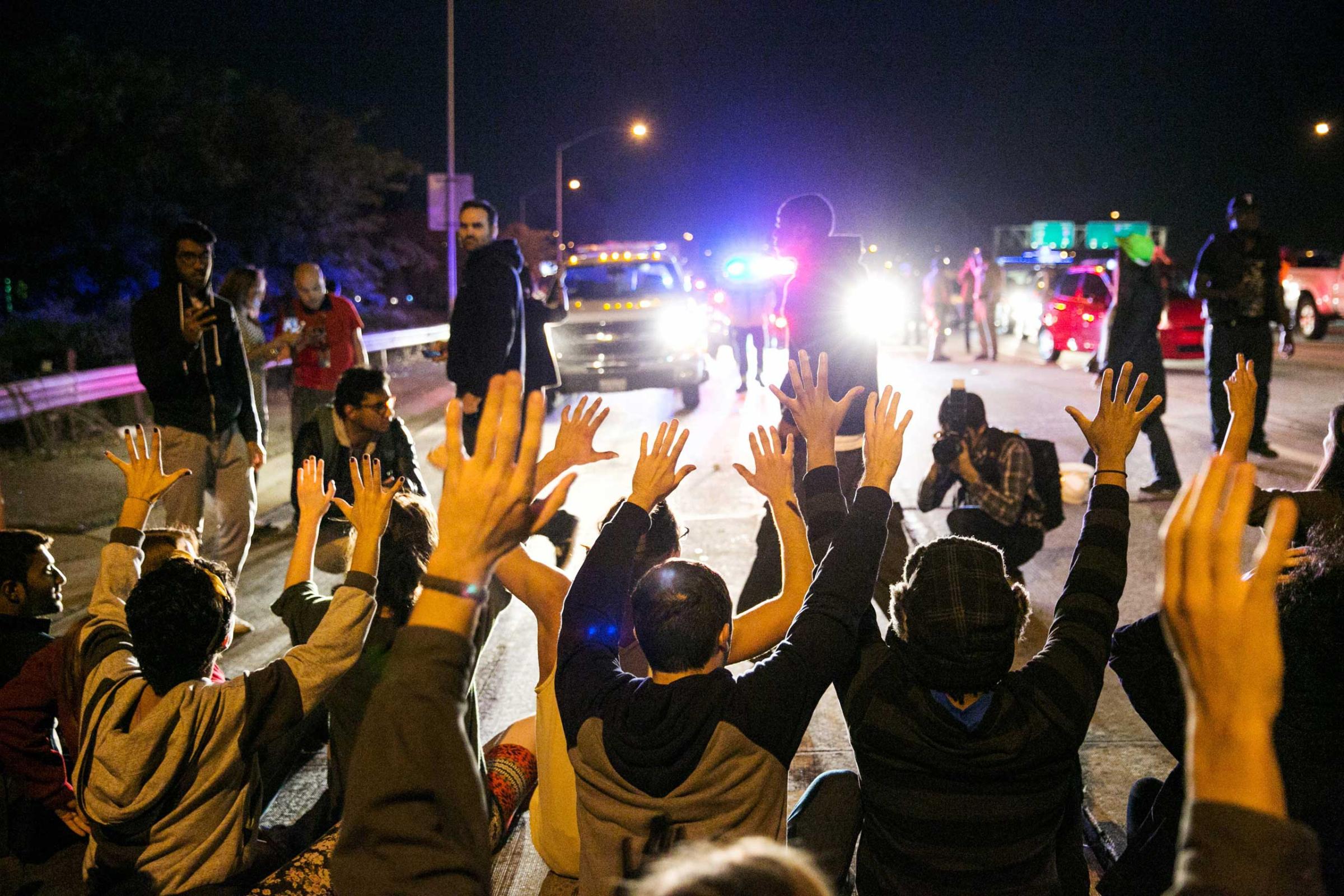
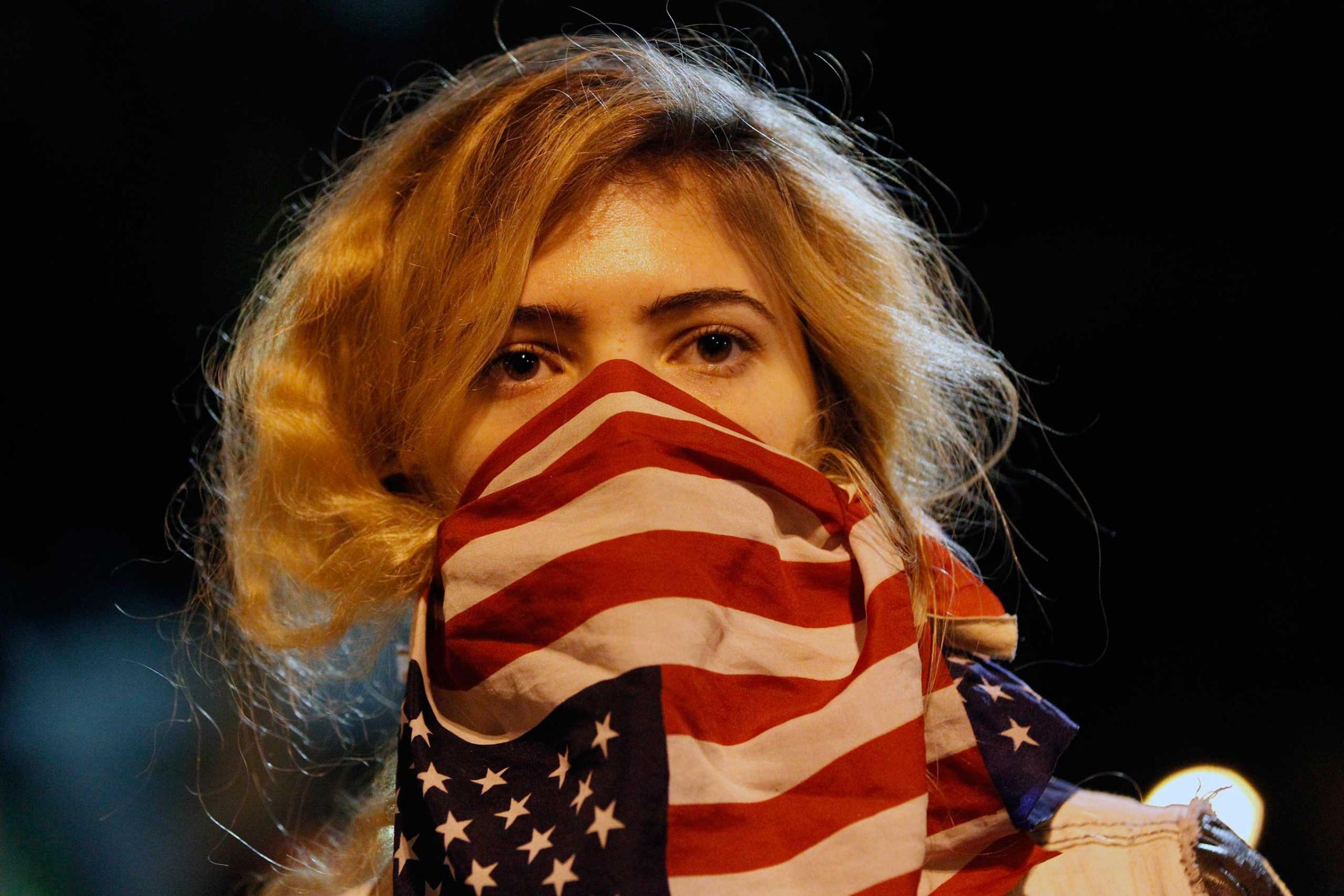
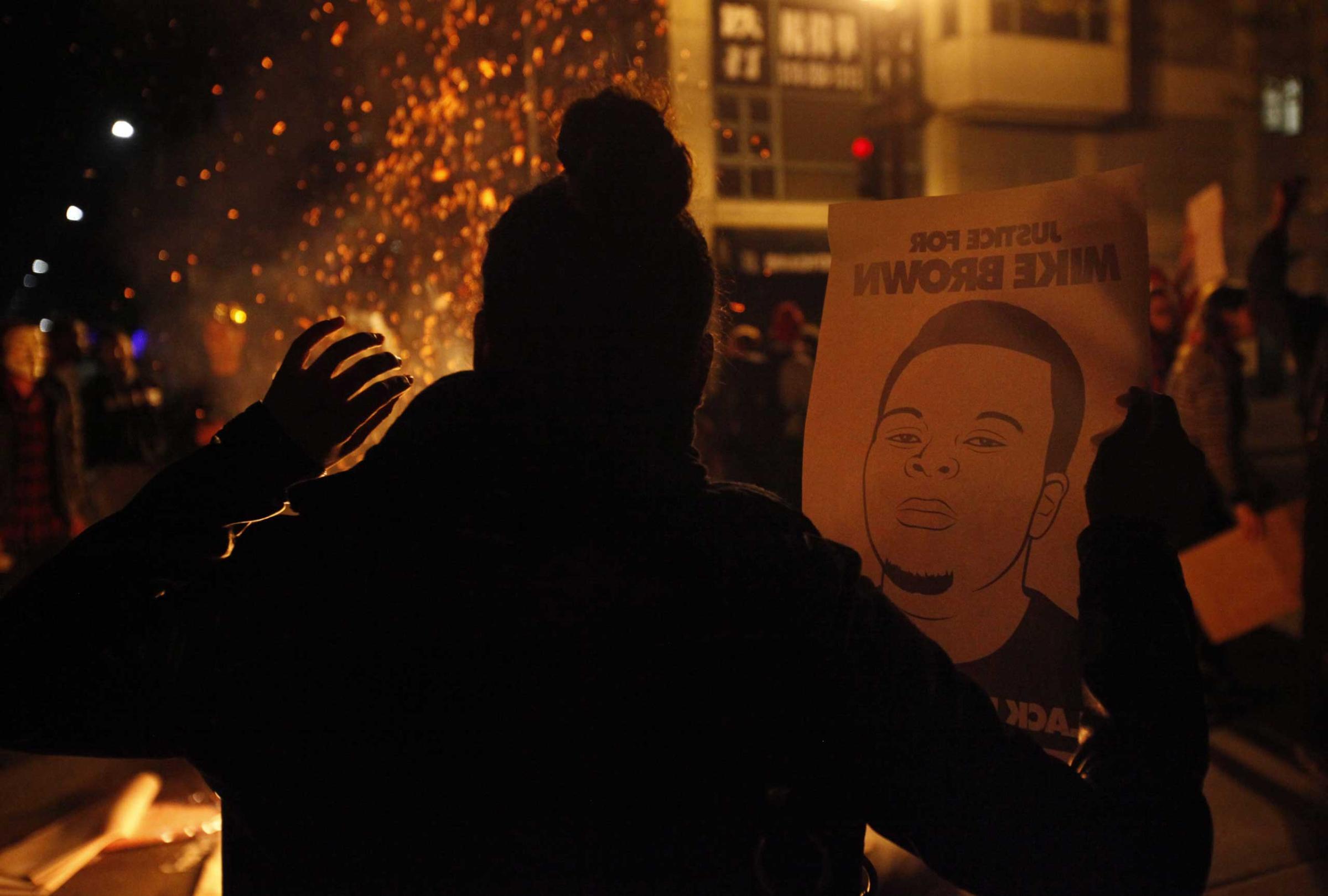
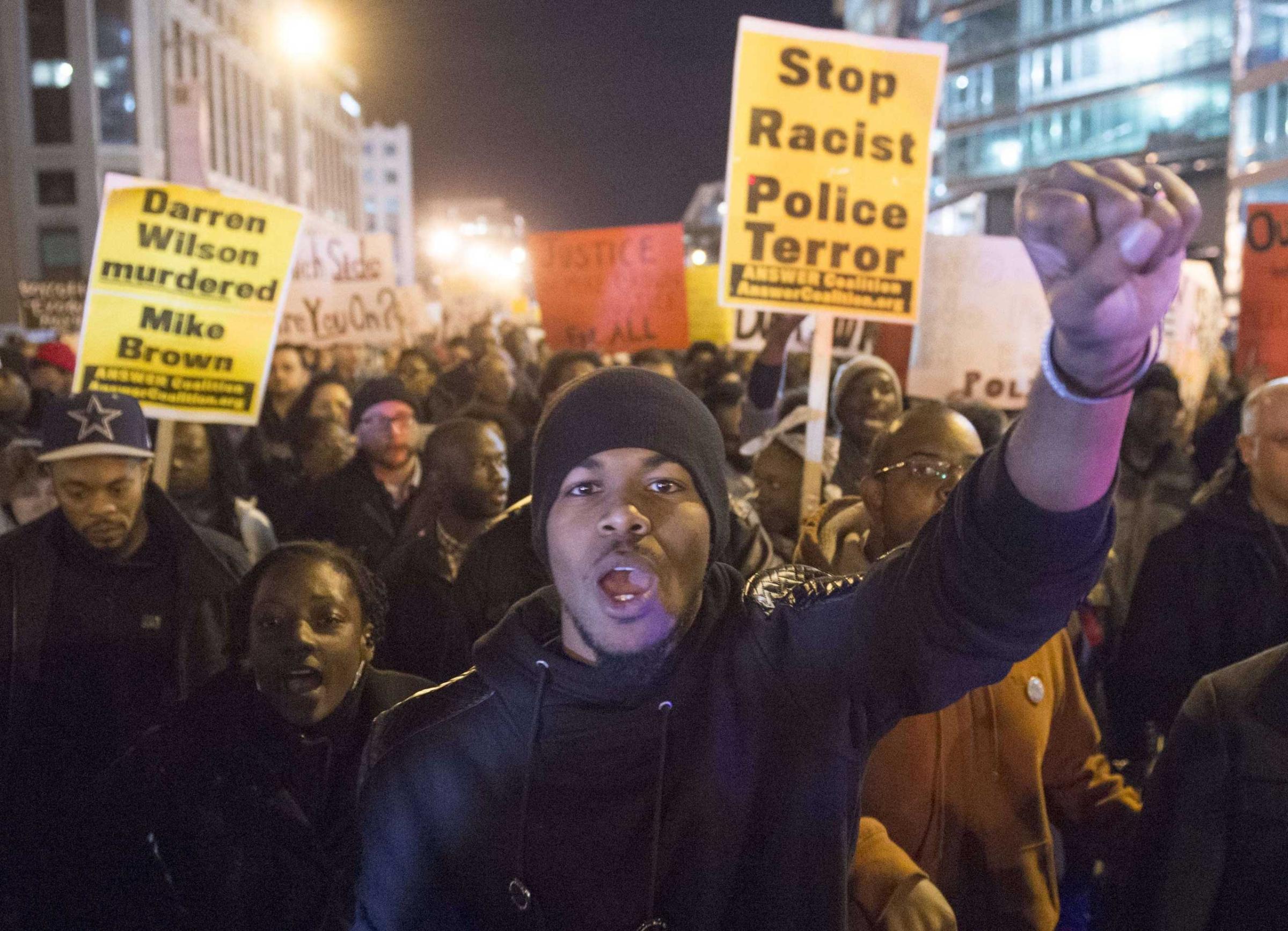
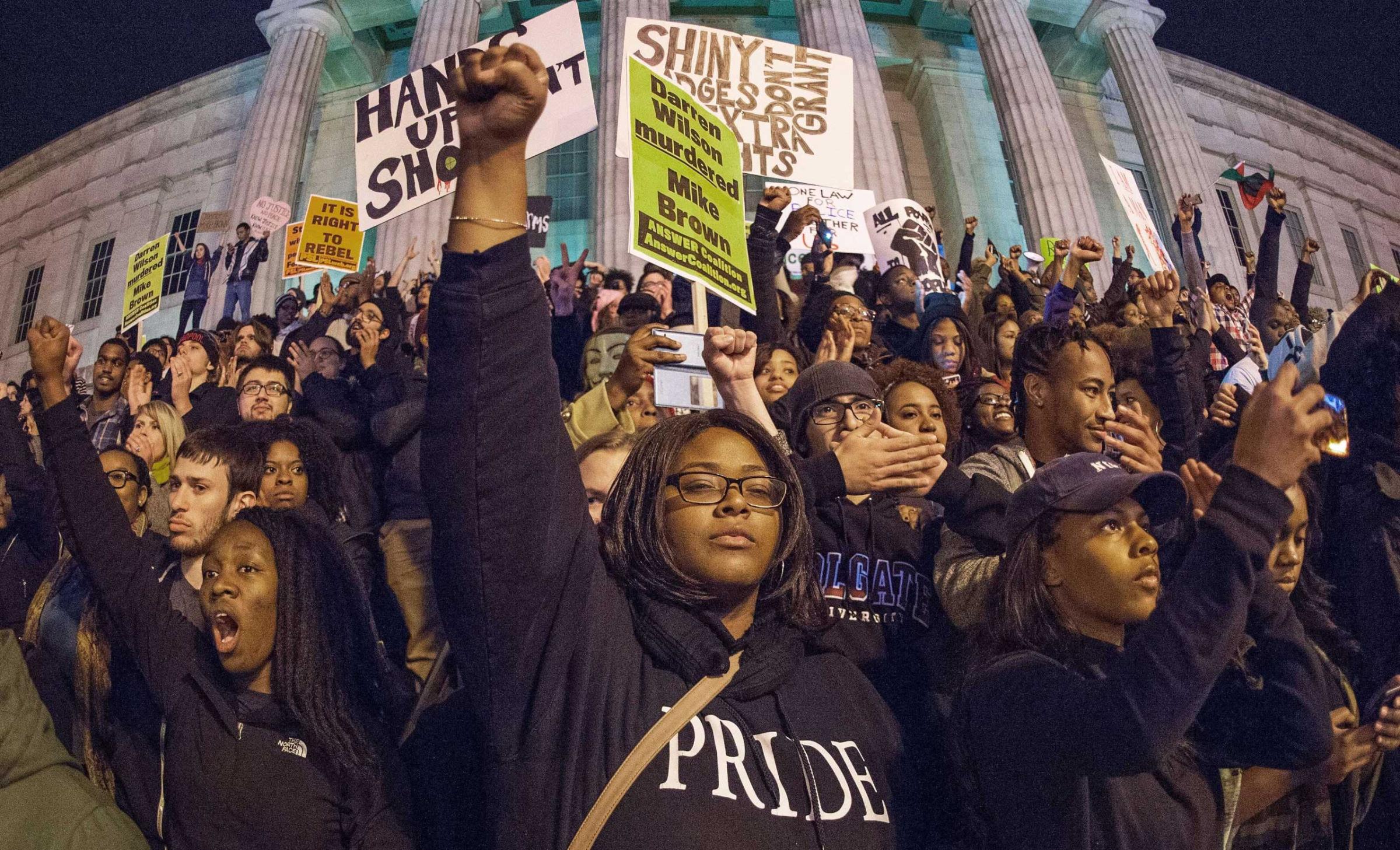
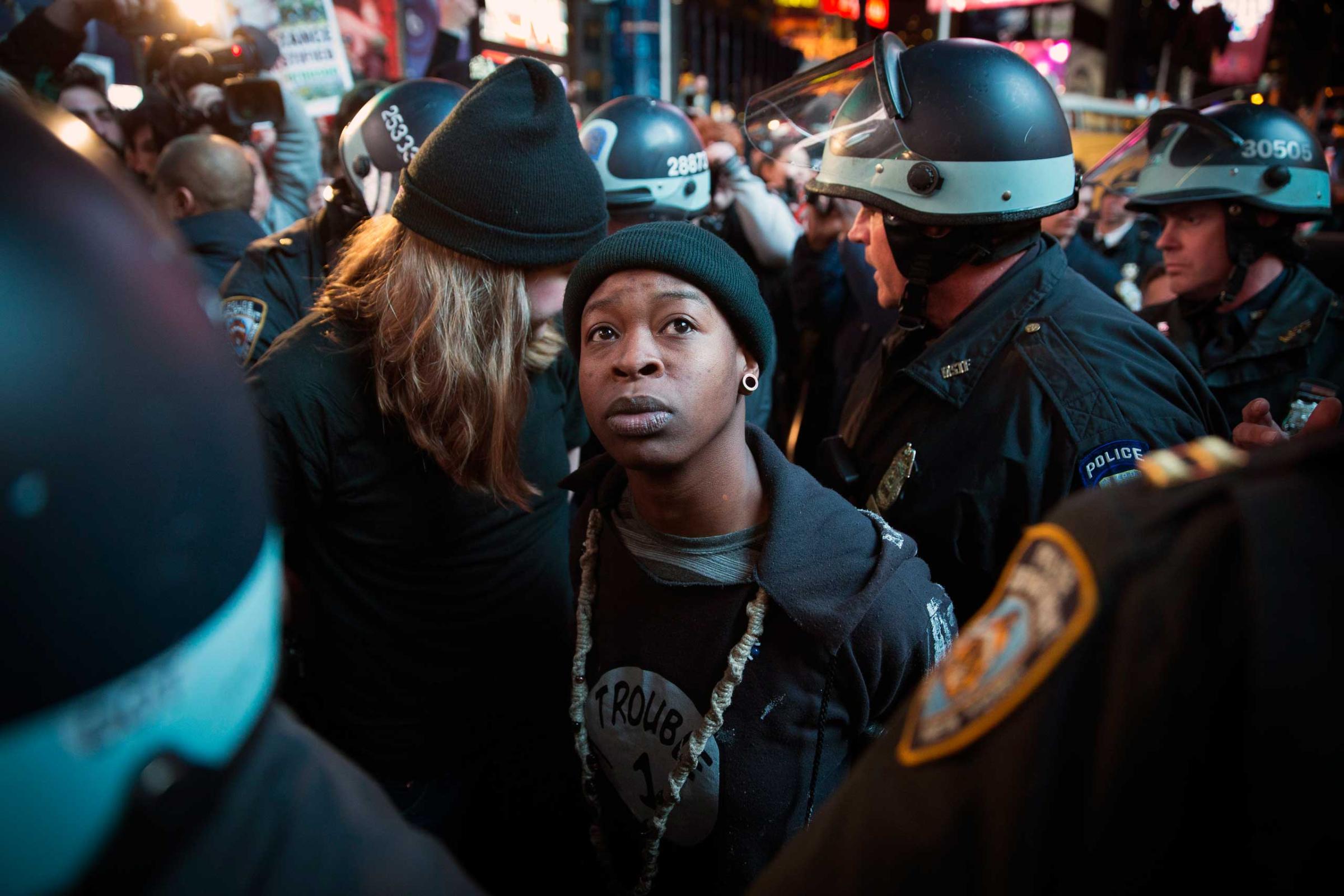
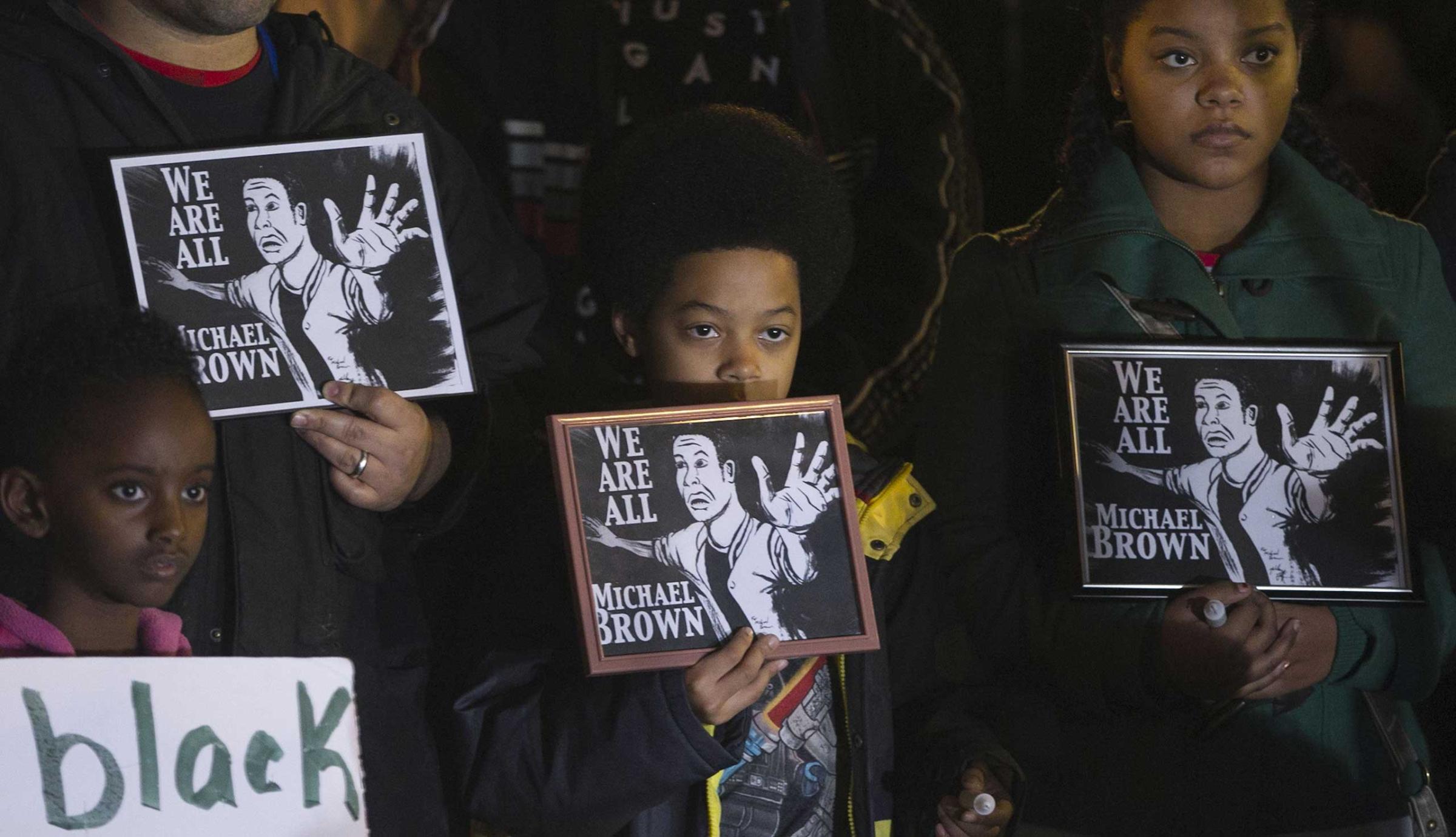
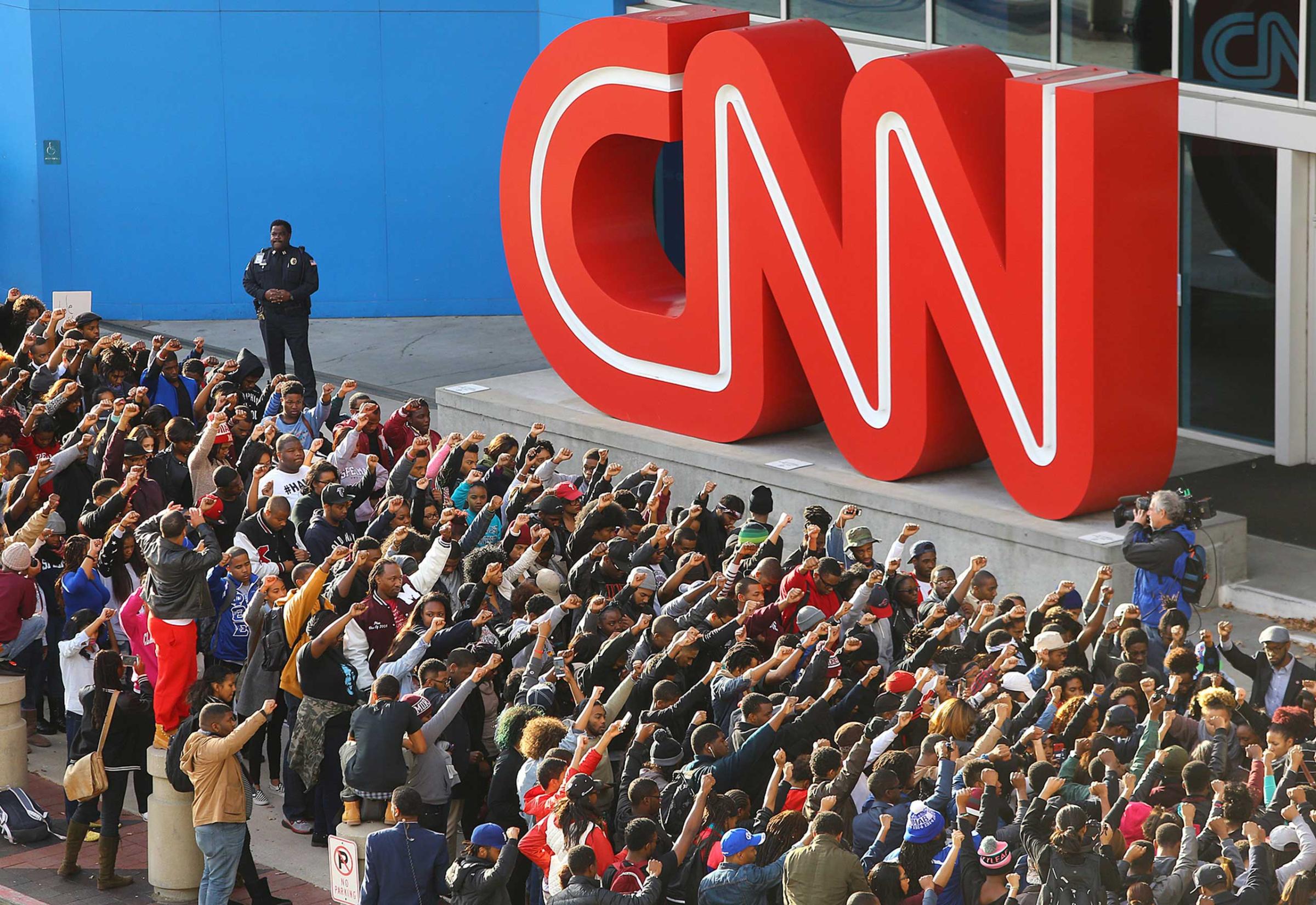
No one can fail to notice that it’s primarily men doing the shooting, and primarily men getting shot at. I bring this up not to recite any of the usual clichés about masculinity and inborn aggression — about which I’m something of an agnostic, to be honest. Regardless of whatever genetic inheritance has been passed down from our caveman progenitors, or the effects of testosterone on male emotions, my view is that culture still overrides biology. We’re social animals.
So what kind of culture is it we’re talking about? What kind of police culture? No one doubts, after watching what has unfolded in Ferguson since August, that from the standpoint of local citizens (most of whom are black), the police force appears as an occupying army. And that from the vantage point of a police cruiser, most suspects appear as young black men.
Both perceptions flow from the same sources: the late 20th century “war on drugs” and the 21st century “war on terror” that between them militarized law enforcement at all levels, from the federal to the local. The difference between local police forces and actual troops, though, is how they’re trained to respond to threats. The troops we’ve sent overseas in the post-Vietnam era are trained to observe rigorous rules of engagement, with breaches subject to investigation and court-martial. The military prosecutes and imprisons troops for excessive use of force. The soldier’s culture demands that he not take the skirmish, or the IED, or the insurgent personally.
Should the Ferguson Protesters Be TIME’s Person of the Year? Vote Below for #TIMEPOY
There’s no Uniform Code of Military Justice for local police, or any national standard at all; there’s certainly no international law to adhere to, no Geneva Convention to consult. In the Ferguson confrontation, according to Officer Wilson, he was the vulnerable one: physically outmatched (though Wilson is 6 ft. 4 in. and weighs 220 lb.), not to mention mocked and insulted; fearing for his life despite the fact that he had the only gun. No training he received seems to have helped him deal with this situation without a fatally aggressive overreaction. Twelve bullets is a lot of bullets.
What we tend to forget about manhood is that it’s as much an endangered state as a powerful one, and one of the foremost dangers for a lot of men is being regarded as not enough of a man. It’s a castration threat, if you want to get Freudian about it, and having a gun at the ready is one sort of remedy.
There’s a tragic dimension to masculinity that goes undiscussed these days. We’re supposed to have gotten beyond the old gender stereotypes, warrior mentality included. But the tragedy of the warrior cop, the tragedy of the paranoid embattled style of masculinity—evidenced in every casual insult about who is or isn’t “a p-ssy,” from the playground to the squad room—touches all of us, men and women alike.
Kipnis’ new book is Men: Notes From an Ongoing Investigation.
More Must-Reads from TIME
- Donald Trump Is TIME's 2024 Person of the Year
- TIME’s Top 10 Photos of 2024
- Why Gen Z Is Drinking Less
- The Best Movies About Cooking
- Why Is Anxiety Worse at Night?
- A Head-to-Toe Guide to Treating Dry Skin
- Why Street Cats Are Taking Over Urban Neighborhoods
- Column: Jimmy Carter’s Global Legacy Was Moral Clarity
Contact us at letters@time.com